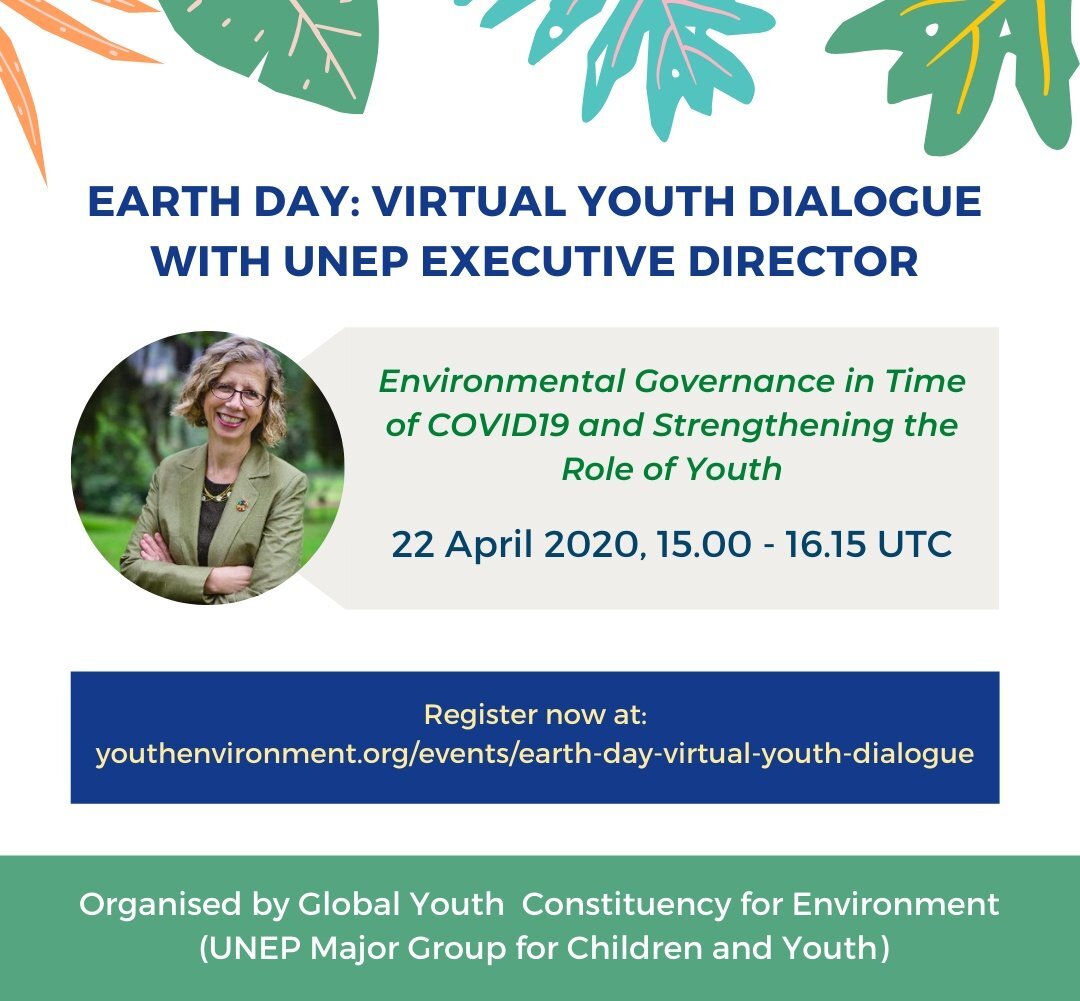Virtual Youth Dialogue with Ms. Inger Andersen, Executive Director of UN Environment Program
Young people, from all regions, countries, and backgrounds; those actively engaged in economic activities across sectors and industries; as well as those that are in school and those not in employment, education and training, should engage in being part of the constructive voices to the forefront of action and policy responses in Africa and globally. COVID-19, the global pandemic, has stricken at a time when nations were not well prepared despite indirect warnings from the ecosystem.
In 2016, the UN Environment Programme (UNEP) identified the issue of zoonotic diseases as a key emerging issue of global concern in its Frontiers publication series. (UN, 2016) The chapter on zoonoses – diseases that can be passed on from animals to humans – illustrates how the emergence and re-emergence of zoonotic diseases are closely interlinked with the health of ecosystems. This was supposed to serve as a global warning but was not given the required attention hence the occurrence of COVID-19.
“COVID-19 was not necessarily caused by climate change, but chances of future occurrences however are at high stakes. Can there be future zoonotic related viruses? What happens when the permafrost melts? What happens in the case of increased forest degradation where animas are forced to live in closer proximity? It is all possible. Let’s all look into the horizon and strategize on a global sustainability shift.” Says Inger Andersen, Executive Director of UNEP.
Over the recent weeks, there has been a notable decrease in levels of CO2 emissions due to the drastic drop in industrialization globally, which may have a noticeable impact on climate change with regard to air pollution, but its impact can only be felt at local levels in small quantities. For global impacts, there is need to adopt sustainability. We need not get fooled by the slight drops in the pollution levels, it is still a crucial matter of concern. COVID-19 is not a ‘celebration’ even to the environment, but it should trigger a commitment into a new green world for a sustainable community. We need a fundamental rethink in our energy and transport sectors and a fundamental rethink in sustainable production. The main lesson from COVID-19 is; “We need to re-strategize our industrial setups”
The world post COVID-19 will be forever altered. In Wuhan, China for instance, there has been an ironic increase in plastic waste from approximately 40 tonnes to 240 tonnes from clinical waste which may cause detrimental risks to man and the environment if proper disposal strategies are not well laid out. Systematic shifts are what will have a positive impact on climate change.
The World Health Organization (WHO) estimates that 4.6 million people die each year from causes directly attributable to air pollution. Ms. Inger Andersen adds that: “The young need to focus on what we are doing NOW and what we plan to do post-pandemic. Let not the environment be an afterthought,”
We definitely will get past COVID-19, but we cannot dial back Climate Change. There’s dire need for global solidarity to restore environment’s sanity especially for youth, to win ourselves off and to curb reliability on nature to sustain our livelihoods as well as job dependencies i.e. Industrial and agricultural sector. Youth and young people carry a heavy burden to bringing the climate issue to the global attention.
Let’s not make the environment our enemy. We have a duty to protect planet earth because planet earth protects us.
Now is the time to accelerate synergies.
“POWER IS NOT GIVEN, IT IS TAKEN.” António Guterres -Secretary General UN
REFERENCES
Earth Day: Virtual Youth Dialogue. (2020). Retrieved from https://www.youtube.com/watch?v=gURsxM_EzZs&t=3841s
Environment, U. (2016). Frontiers 2016: Emerging issues of environmental concern. UN Environmental Program (UNEP).


